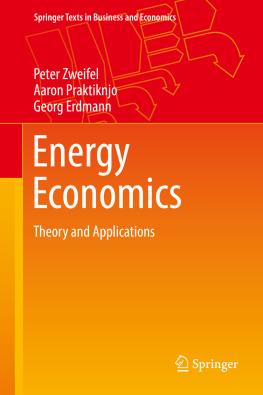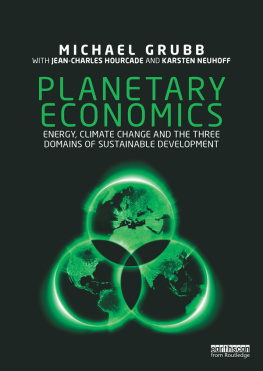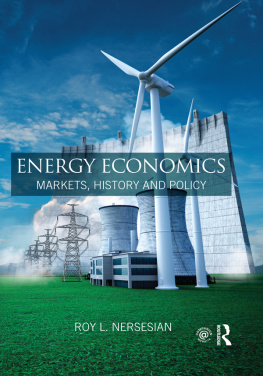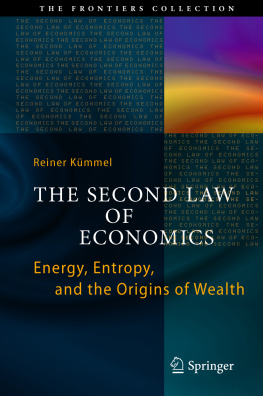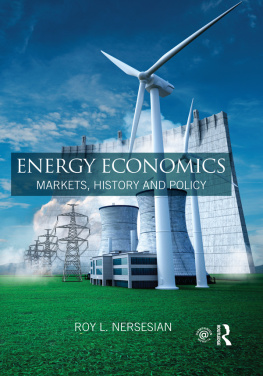Peter Zweifel Aaron Praktiknjo - Energy Economics
Here you can read online Peter Zweifel Aaron Praktiknjo - Energy Economics full text of the book (entire story) in english for free. Download pdf and epub, get meaning, cover and reviews about this ebook. year: 0, publisher: Springer Berlin Heidelberg, Berlin, Heidelberg, genre: Romance novel. Description of the work, (preface) as well as reviews are available. Best literature library LitArk.com created for fans of good reading and offers a wide selection of genres:
Romance novel
Science fiction
Adventure
Detective
Science
History
Home and family
Prose
Art
Politics
Computer
Non-fiction
Religion
Business
Children
Humor
Choose a favorite category and find really read worthwhile books. Enjoy immersion in the world of imagination, feel the emotions of the characters or learn something new for yourself, make an fascinating discovery.
- Book:Energy Economics
- Author:
- Publisher:Springer Berlin Heidelberg, Berlin, Heidelberg
- Genre:
- Year:0
- Rating:3 / 5
- Favourites:Add to favourites
- Your mark:
- 60
- 1
- 2
- 3
- 4
- 5
Energy Economics: summary, description and annotation
We offer to read an annotation, description, summary or preface (depends on what the author of the book "Energy Economics" wrote himself). If you haven't found the necessary information about the book — write in the comments, we will try to find it.
Energy Economics — read online for free the complete book (whole text) full work
Below is the text of the book, divided by pages. System saving the place of the last page read, allows you to conveniently read the book "Energy Economics" online for free, without having to search again every time where you left off. Put a bookmark, and you can go to the page where you finished reading at any time.
Font size:
Interval:
Bookmark:
- Why has energy economics developed as a separate discipline of economics?
- Why does energy economics cover more than the straightforward application of standard economic methods and models to energy markets?
- One of the conditions for the development of human civilization was the control of fire. Before, energy in form of biomass was used for the biological metabolism of human bodies. Now, the thermal use of biomass became possible. The thermal use of biomass by hominids may have begun around 800,000 years ago. The control of fire became a key distinction between the Homo erectus, the ancestor of the Homo sapiens, and other species. It was also causal for the first forms of cultural life with the family as its roots.
- A further milestone of human civilization was triggered by the Neolithic revolution with the emergence of agriculture and farming 10,00020,000 years ago . It required technological know-how concerning the use of energy along with the division of labor for creating the first urban infrastructures. This important societal change also marks the beginning of scientific research.
- About 50006000 years ago, the use of other renewable energy sources (sailing boats, later on wind mills and water mills) created the conditions of advanced civilizations.
- With the first industrial revolution , muscular power of animals and humans (often slaves) was replaced by engines, with coal becoming the fuel of mechanization. Industrial development was concentrated in areas with easy access to coal: instead of transporting coal to the people, people were moved from rural areas to industrial centers. The implications were significant socially, giving rise to so-called Manchester capitalism, trade unionism, as well as concerns for the environment. A piece of evidence is the artificial word smog, which combines smoke from the burning of coal and fog. Indeed, disastrous air pollution led to several thousands of premature deaths in London and other industrial centers.
- At the turn of the twentieth century, coal was partly replaced by crude oil as the leading energy source, foremost in the United States. The ample availability of this relatively cheap energy source made the realization of the American Dream (meaning material prosperity for all) possiblethough associated with excess use and waste of energy.
- The service, information, and communication society (the outcome of the second industrial revolution) depends on electricity as its key energy source. Development of the necessary power systems started with large-scale thermal power plants, including nuclear. Currently, these capacities are being replaced by distributed power generation based on wind, solar, biomass, and cogeneration (also known as combined heat and power). This transition has just begun; at this time, a future steady state is not yet in sight. However, it is quite possible that the character of society may change again, due to a massive acceleration of innovation transforming its infrastructure.
Font size:
Interval:
Bookmark:
Similar books «Energy Economics»
Look at similar books to Energy Economics. We have selected literature similar in name and meaning in the hope of providing readers with more options to find new, interesting, not yet read works.
Discussion, reviews of the book Energy Economics and just readers' own opinions. Leave your comments, write what you think about the work, its meaning or the main characters. Specify what exactly you liked and what you didn't like, and why you think so.

